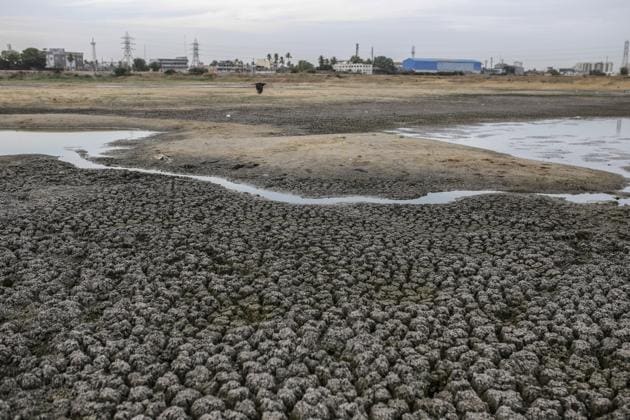Recovery must take into account the climate crisis
Create mass awareness, nudge governments, incentivise businesses, and strengthen international institutions
As the coronavirus disease (Covid-19) continues to engulf the world, the other big agenda of our time — the climate crisis — has begun to re-emerge from the shadows. The big question, of course, is whether the pandemic will accelerate our quest for a zero-carbon-emission world or will it set us back. The lessons of the virus will not automatically rub-off on the climate crisis agenda unless a set of deliberate, strategic actions are taken.

Covid-19 has certainly opened everyone’s eyes to possibilities that can positively impact the climate agenda. Clean, breathable air and the reality of a work-from-home culture are the obvious ones. For manufacturers, shorter supply chains with its lower Scope 3 greenhouse gas emissions will become a business continuity imperative. The similarities between Covid-19 and the climate crisis — both in terms of their disruptive impacts on human lives and the economy and their response that emphasises science and the need to build resilience — can also benefit the climate agenda.
There are other reasons for optimism. A Standard & Poor’s global report says that during the pandemic, companies such as Microsoft, Royal Dutch Shell, Morgan Stanley, Bank of Montreal and Citibank have made climate-related pledges. A BBC report quoted Frans Timmermans, the chief of the European Commission (EU)’s Green Deal (which commits the EU to net-zero emissions by 2050), as saying that every euro spent on economic recovery measures after the Covid-19 crisis will be linked to the green transitions.
However, history and economics provide a counter-narrative. For instance, after the 2008 financial crisis, global carbon dioxide emissions from fossil fuel combustion and cement production fell 1.4% in 2009, but with economic stimulus resources disproportionately allocated to polluting industries, emissions rebounded to 5.9% in 2010.
The impact of the indefinite postponement of COP- 26, where countries were expected to announce enhancement of their Paris commitments, is still awaited. Big emitters such as China, the US and Brazil have indicated a relaxation on environmental compliances and enforcement. Even as the EU reiterates its commitment to the Green Deal, a few member-countries have publicly sought moratoriums. The negative growth economies of the developed countries will mean less finance available to developing countries to meet their Nationally Determined Contributions, a condition that countries such as India have placed in order to fulfil its own commitments. And historically low oil prices, combined with reported announcements from major oil producers to increase production, will work against the interests of a low-carbon recovery.
There is, therefore, reason to believe that a post-Covid low-carbon recovery is neither inevitable nor automatic. Therefore, a set of five actions can and must be taken to enable this to happen.
One, nudge governments on to a low-carbon recovery path. Climate champions — NGOs, think tanks, academia, activists around the world — should produce evidence to demonstrate to governments the long-term economic and resilience gains from economic stimulus programmes that prioritise investments in low-carbon pathways. This could include assistance to businesses conditioned on drastic cuts in emissions and financial industry bailouts that require banks to invest less in fossil fuel and more in climate crisis mitigation and resilience efforts.
Two, make the climate crisis a people’s campaign. The environmental gains from Covid-19, the renewed faith in science as well as the comparable risks to human life that the climate crisis and Covid-19 represent are good hooks to make it so. This requires converting the incredible scientific evidence that exists on the climate crisis into simple, understandable and actionable messages that individuals and communities, particularly young people, can use to make changes in their own behaviour while influencing businesses and governments in their roles as customers, employees and responsible citizens.
Three, strengthen the “business case” for climate efforts. Some of the rub-offs of Covid-19 on climate such as shorter supply changes and reduced business travel are self-evident to companies and will happen. Investors and lenders, who have understood risk better now must see the benefits of pushing for resilience in the companies they fund. Insurers must factor in these risks. All this will incentivise companies to go down a low caron path.
Four, build a national consensus on long-term low-carbon strategy. The response to Covid-19 has demonstrated both the need and the possibility for a political consensus, which is critical in a democracy. Climate crisis actors such as think tanks and advocacy groups should work to ensure this momentum is maintained. The development of long-term low greenhouse gas emissions development strategies for India will be a useful instrument to build such a consensus.
Five, strengthen international cooperation and institutions. To address the spatial aspects of a global challenge such as the climate crisis, there is a need for a global institution to anchor the process, a role that the United Nations Framework Convention on Climate Change (UNFCC) has played for a long time. However, the somewhat tarnished reputation of the World Health Organization during Covid-19, and the rather scattered and private sector-driven search for a vaccine, suggests that strengthening international cooperation and UNFCC and United Nations Environment Programme as institutions is a project that all climate change champions must commit themselves to.



